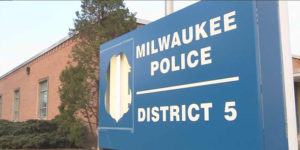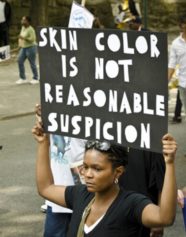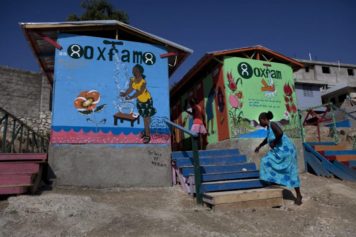With a FBI human trafficking sting that rescued nine teenagers from prostitution, Milwaukee has become the Harvard of pimp school, reflecting a culture of pimping and sexual exploitation that has been enabled through economic disparities that ensnare vulnerable Black youth.
In recent years, the city has been in the top five cities in the nation for the recovery of adolescents from human trafficking, and it came in first in 2011, according to a report from the Guardian. This year, the city is tied with Las Vegas for the second largest number of youths rescued in raids by the feds. Denver came in first with 20 young people rescued, followed by Detroit with 19.
“There’s no way that the numbers are accurate,” Dana World-Patterson, chair of the Human Trafficking Task Force of Greater Milwaukee told the Guardian. “Milwaukee has been considered the Harvard of pimp school, Wisconsin, the hub of human trafficking.”
According to a local trafficking prevention project, Proactive Outreach for the Health of Sexually Exploited Youth, 133 minors were trafficked or suspected of being victims of trafficking or exploitation in 2014. A 2013 review of Milwaukee police records by the city’s Homicide Review Commission found that 68 percent of the 77 minors who were sex trafficked between 2010 and 2012 were 16 or 17. A third were younger than 16, and the youngest was 12.
The vast majority were African-American girls (78 percent or 60 of the 77 minors), primarily from the city’s north side. White girls were 18 percent (14), followed by Latinos (3 percent or 2 youth) and Indian (1 percent or 1 child). 71 of the youth were female and six were male.
The police report also disclosed that nearly 70 percent of the children were reported missing to the Milwaukee Police Department at least once in their life, and more than a quarter were reportedly sexually assaulted, mostly by people who were not caregivers. Further, nearly a third sought out law enforcement assistance to report the trafficking.
Under federal law and Wisconsin state law, trafficking involves engaging a minor in a sex act for money, as minors are unable to give consent.
The traffickers include women and men. Typically, high-risk children are runaways, have suffered sexual and physical abuse and have been traumatized in a way that already makes them vulnerable to a pimp’s advances and the sex trade. In addition, young people who speak up about their victimization often find themselves stigmatized and ostracized by parents, and otherwise unsupported. Further, a thriving “embedded” pimp culture with an underground economy is present in Milwaukee. Pimps are known to fill up a courtroom with supporters when facing a trial, or visit a victim’s place of employment to entice them back on the “track.”
And according to the Milwaukee Journal-Sentinel, the city has “pimp roundtables” in which Milwaukee pimps would meet to “discuss business practices” in an illegal trade involving picking up young women through force, fraud and coercion.
However, what is inherent in fueling the crisis of sex trafficking and vulnerable youth in Milwaukee is the state’s vast economic disparities. Wisconsin has the highest Black unemployment rate in the nation at 19.9 percent, with fewer than half of adult Black men in Milwaukee being employed. Further, according to In These Times, the city lost 80,000 jobs since the 1970s, and median wages dropped about 22 percent between 1999 and 2010.
Wisconsin Gov. Scott Walker has left his state’s economy a shambles. According to Bloomberg News, “Wisconsin ranked 33rd among U.S. states in economic health improvement during Walker’s first term.” As Salon reported, Walker’s most recent state budget proposed to cut $300 million from higher education spending in order to spend about the same amount to build a new arena for the Milwaukee Bucks. And according to The Hill, “Walker was unable to take his state out of the red and faced a $2 billion budget deficit. Walker made the decision to cut taxes for millionaires and billionaires, while slashing education funding and refusing to make investments that would benefit middle class families and Wisconsin’s financial well being.”
This economic reality makes it even more difficult for victims to escape sex trafficking. Meanwhile, State Representative LaTonya Johnson of Milwaukee has introduced a “safe harbor” bill that would decriminalize sex work for minors, although it would be an uphill battle to fund the legislation if passed. Other legislation would mandate that an advocate accompany children during interviews with law enforcement.
However, experts emphasize that the underlying problems of systemic poverty and economic inequality must be addressed in order to stem the tide of sex trafficking.



